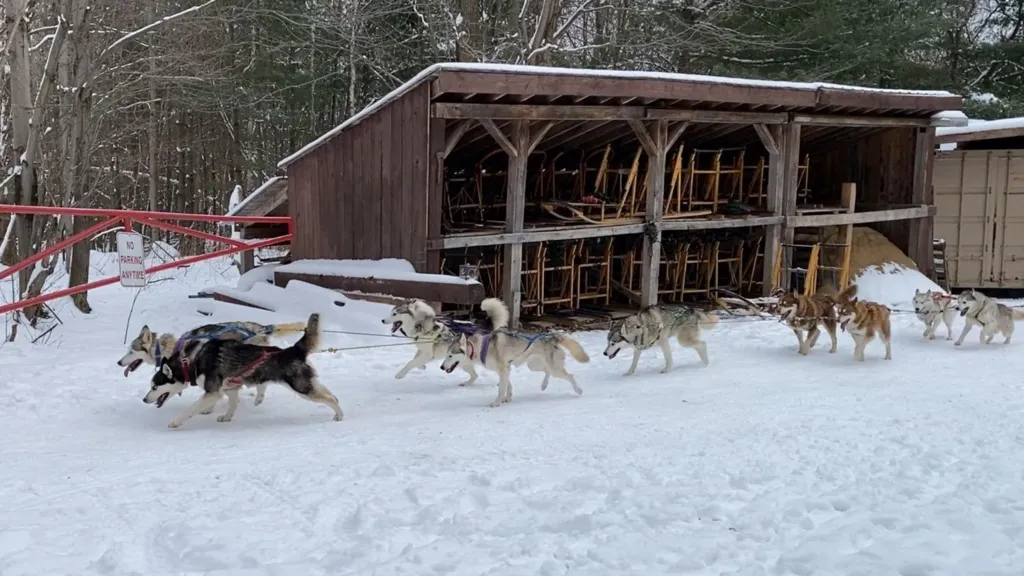If you’ve ever found it difficult to adjust to the seasonal time changes of “springing forward” and “falling back,” imagine the challenge faced by the sled dogs of Ontario, Canada.
A recent study has found that the time shift significantly disrupts these hardworking animals, whose days follow strict routines. Researchers from the University of Toronto placed movement sensors on a group of Canadian sled dogs and discovered that the dogs were up and moving around almost exactly an hour earlier the morning after the clocks went back.
Interestingly, pet dogs of the same breeds showed no such effect, peacefully staying in bed during their extra hour. “I wasn’t expecting any differences between the two groups,” said Lavania Nagendran, one of the lead researchers. “So it was fascinating to see how strongly the working dogs adhered to their routines.”

The study, published in the journal PLoS One, is part of a broader project exploring the behavioral differences between wolves and domestic dogs. “Not all animals can simply adjust their schedules based on human-imposed changes like daylight saving time,” explained Ming Fei Li, co-lead researcher. The team hopes to learn whether wolves can adjust their activity patterns as well, and if this flexibility is an evolutionary trait or a result of domestication.

While much of the research on the effects of time changes focuses on humans, previous studies have shown that the shifts can lead to disrupted sleep and even an increase in fatal traffic accidents. This study is the first to examine its impact on domestic dogs.

The researchers placed motion trackers on 25 sled dogs and 29 pet dogs in Ontario. For the sled dogs, the time change forced a sudden adjustment in their otherwise tightly controlled schedules. Before the clocks went back, handlers arrived at the kennels at sunrise, but on the morning after the clocks shifted, the dogs were up and moving about an hour ahead of schedule.
For most of these working dogs, the disruption only lasted a day, with their activity soon realigning with their handlers’ arrival. However, the pet dogs did not show any measurable disruption, adjusting smoothly to the new schedule.
“When we’ve spoken to pet owners, everyone comments that with the time change, their pets are eager to wake up and be fed,” said Li. “But we didn’t observe that behavior in the pet dogs we studied.”
The research, carried out in 2021 during the COVID-19 lockdown in Canada, involved remote participation from pet owners with huskies or malamutes. “The pet owners were amazing,” Li recalled. “They were really engaged, asking questions and keeping great notes as they attached the trackers to their dogs’ collars.”
The study’s key takeaway is that, for working dogs, a gradual transition into a new schedule might be helpful, as abrupt changes can be unsettling. However, for pets with no work demands and comfy beds, the shift might be a bit easier to handle.
